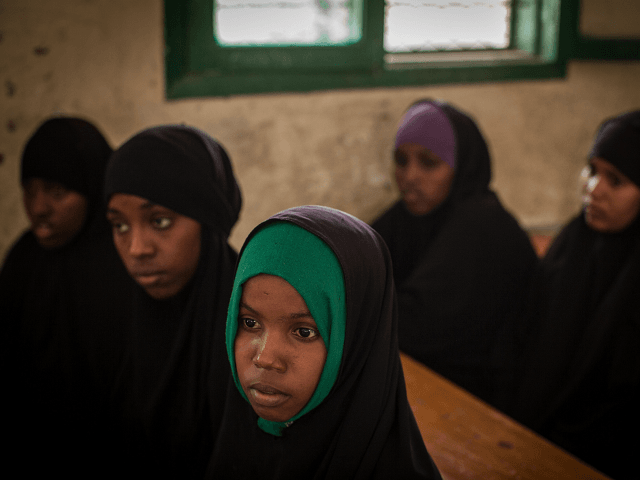The British government has pledged an extra £5o million in foreign aid to stop female genital mutilation (FGM) globally — while the UK has failed to convict a single person despite thousands of victims reported annually.
The Department for International Development (DfID) made the announcement Friday that British taxpayers will be fronting £50 million — “the biggest single investment worldwide to date by any international donor,” according to the department — to stop the practice by 2030, focusing on Africa.
International Development Secretary Penny Mordaunt said: “Somewhere in the world, every seven seconds, a girl is at risk of FGM. Inspirational, courageous African women are leading efforts to end the practice in their own countries, and thanks to them, more communities are starting to abandon the practice.
“But progress is at a critical juncture and we must work to protect the millions of girls that are still at risk of being cut. We also can’t end FGM in the UK without ending it globally,” Ms Mordaunt said, signalling, perhaps, an admission that immigration from FGM-culture countries will continue to aid the proliferation of the child abuse in the UK.
“I am proud UK aid is supporting the growing Africa-led movement against FGM and empowering women and girls in some of the world’s poorest countries to stand against the practice. Together, we can build a safer, healthier and more prosperous world for every child,” the government minister added.
The increased spending on foreign aid comes against a national backdrop where there has been not one successful prosecution for parents or practitioners in the UK. Despite female genital mutilation being illegal since 1985, the first case only came to court in 2015, the doctor ultimately found not guilty. The second ever trial, against a father, collapsed in March 2018.
The World Health Organization (WHO) estimates that some 200 million women and girls worldwide have been subjected to genital mutilation in Muslim-majority countries in the Middle East, Africa, and Asia.
With mass migration in recent decades from these countries, the cultural practice has been imported to European countries like the UK and France — particularly in high-migrant communities like the Seine-Saint-Denis department, north of Paris, where an estimated 30 per cent of girls are at risk of the abuse.
In the UK alone, there are believed to be 137,000 women and girls who have had their genitals cut. In just three years since the law was changed to make it a duty of medical professionals to report if patients are presenting symptoms of FGM, there have been 28,326 cases recorded.
National Health Service (NHS) figures revealed that last year there were 4,495 new cases of FGM in the preceding 12 months — the equivalent of one girl being cut every two hours.
UK Police have been making a concerted effort to prioritise ‘community outreach’ and education over arrests, with London’s Metropolitan Police lead on FGM saying that they cannot “arrest our way out of the problem.” While West Midlands Police have said that prosecuting and imprisoning parents who permitted the abuse was “unlikely to benefit the child.”
The government is also giving focus to the soft, culturally-sensitive approach to stopping the abuse, after the government launched Thursday a multi-lingual poster campaign to teach migrant parents that FGM is illegal and harmful.

COMMENTS
Please let us know if you're having issues with commenting.